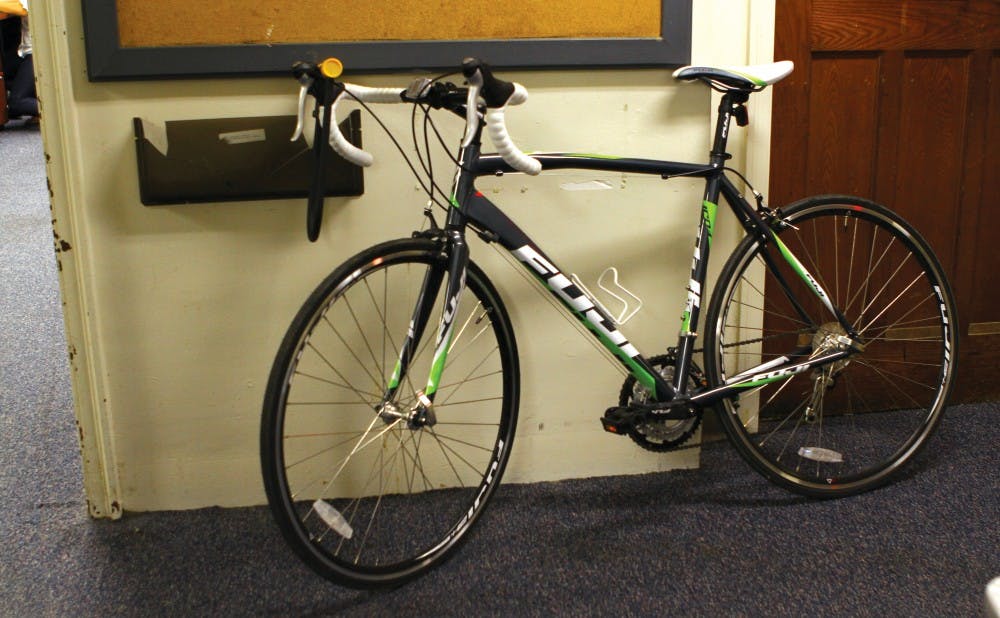After moving from home to home, dozens of displaced bicycles from the Duke Bikes Program are up for sale.
Duke recently disbanded its bike loaner program due to a lack of space, funding and interest. But some students are already looking for ways to bring it back.
The bikes were housed below the West Union Building until renovations began, and then temporarily moved to the Arts Annex off of Campus Drive. Because the University Center Activities and Events has decided to stop paying for the bicycles, the 65 bikes will be sold Friday at the annex for about $100 or less.
“It was a combination of a not ideally organized bike program that lacked oversight and the fact that the UCAE wasn't willing to fund it because of lack of demand,” said sophomore Lavanya Sunder, Duke Student Government vice president for services.
Sunder has been trying to form an ad hoc student committee to reform the bikes program.
“There was a larger interest than I expected,” she said. “I thought it would be a committee of maybe seven people, but almost 50 students expressed interest."
Sophomore Andrew Diao, who reached out to Sunder, said he was a frequent user of Duke bikes. Diao, who arrived to the interview on his own bike, said the program was under-publicized and out of the way, so he had trouble finding it the first time.
Sunder outlined her vision for a new program where there would be multiple stations around campus instead of just bikes at the Arts Annex.
“We've found companies to make that program at Duke,” she said. “But we need funding to make that happen.”
A new program not only needs funding, but an office to oversee it, space to store the bikes, mechanics to maintain the fleet and someone to manage checking the bikes in and out, said David Pittman, Director of Student Activities at UCAE.
“It sounds easy but it's not,” he said.
Diao said having a robust bike program would make getting around Duke easier.
“What a lot of people don’t realize is that it’s so much faster to bike as compared to taking the bus,” Diao said.
Especially during busy times, such as before popular class times, it is difficult to even get on a bus. Diao said that by the end of his freshman year, it only took him around eight minutes to bike from East Campus to West. That semester, he only rode the bus three times.
Sunder argued that because the majority of Duke students live on campus, having a bikes program would help decrease the University's carbon footprint. Many students unnecessarily drive from campus to campus, she added.
"Duke has this thing where they want to be carbon neutral by 2024," she said. "We focus a lot by being green and sustainable, and a successful biking program is part of that."
As for Diao, in addition to getting to class, he said that having a bike has really opened up a world of urban exploration for him.
“You’re not stuck at Duke,” he said. “You can go out and see the town and even go to places that aren’t as accessible by car.”
The bikes will be sold on a first-come, first-serve basis at the Arts Annex on Friday from 11 a.m. to 4 p.m.
Get The Chronicle straight to your inbox
Signup for our weekly newsletter. Cancel at any time.

